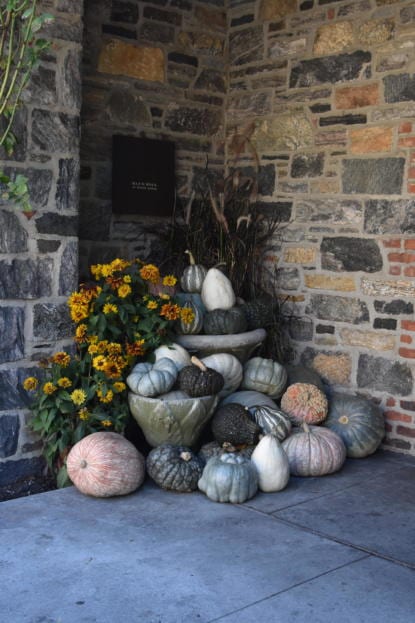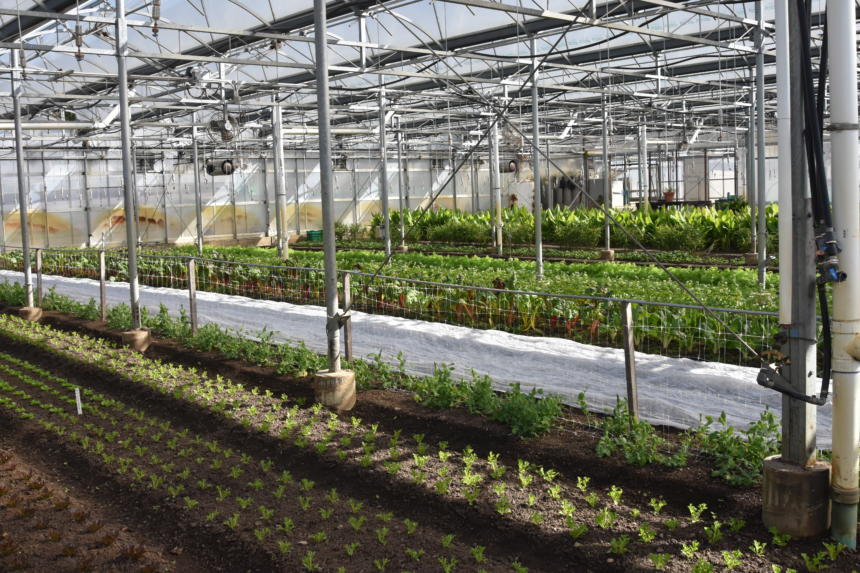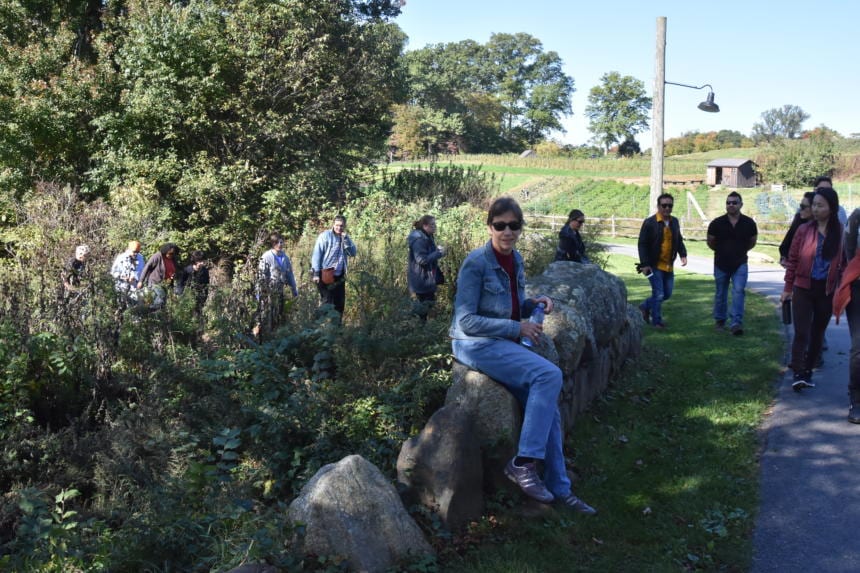The Garrison Institute Goes to Stone Barns Center
By Garrison InstituteOn a recent chilly Thursday morning, the Garrison Institute staff piled into vans and cars, and drove south to Stone Barns for their annual off-site enrichment day.
The Stone Barns Center for Food and Agriculture is a farm center and research institute that strives to create renewable methods for farming in conversation with chefs and restaurants. The Center is nestled in between the Rockefeller Preserve and Pocantico Hills. Many may know Stone Barns as the home of Blue Hill, the restaurant run by chefs Dan and David Barber, which has won multiple James Beard awards and been on many lists for best restaurant in the world.

Stone Barns serves as an education center, teaching apprentice farmers, the public, and chefs how to work with food and the land in a way that is healthy and delicious. Maggi Nolin gave us a tour of the property, and as she walked us through the history of the area, it was apparent that her passion for Stone Barns came from an absolute belief in its mission to change the way that we think about, cook, eat, and farm food.
The goal of every field and every crop is twofold: the farmers want to take care of the land, and the chefs want to cook good food. The entire farm at Stone Barns is pesticide free, except for a small patch of vine fruit that are sprayed with a natural lyme substance. The patches are run on a seven-year cycle: if tomatoes are grown in one section, they will not be grown there for another seven years. This is to create a healthy environment, and maintain the correct nutrients and vitamins in the soil.
We walked through a small wooded area and passed a small apiary. Stone Barns keeps two clutches of beehives on the property to aid in pollination and overall farm health. The tour continued to the chicken coop, where half the staff stayed to help gather eggs. The remaining members of the staff continued down to the animal shelters, where they saw sheep, lambs, pigs, and turkeys.


We’re grateful to have toured Stone Barns, where mindfulness and thoughtful intentions intersect with functionality and delicious food! Learning about food justice and land health was an enriching experience, and we will try to continue these actions in our own programs. The Garrison Institute has its own garden that we hope to expand in the future, as well as a composting program that we hope to expand next year. Learn more about our sustainability efforts here.
Linda Codega is the Garrison Institute’s Marketing and Communications Manager.
Photos courtesy of Marc Weiss.